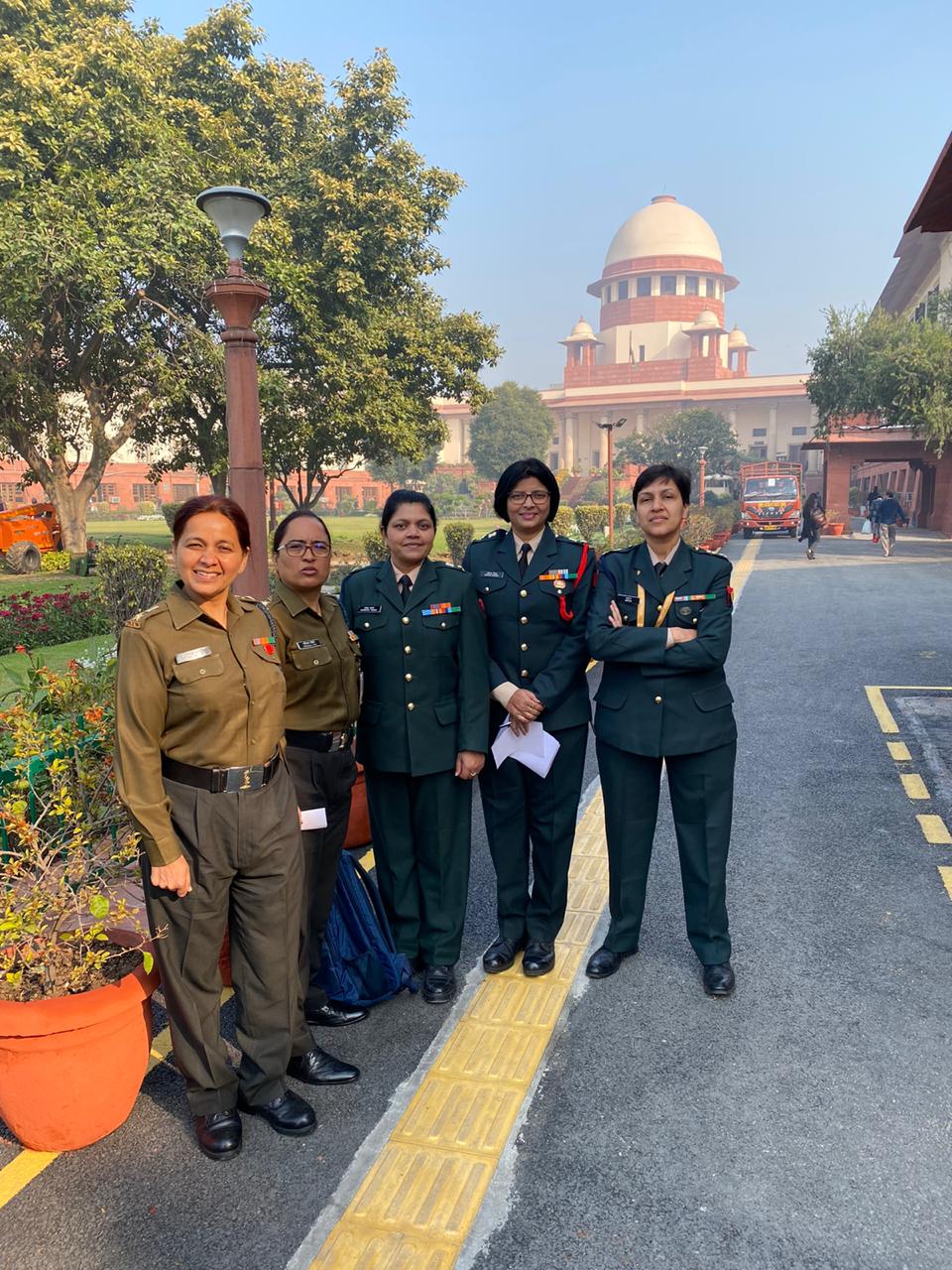New Delhi: When 11 women Army officers first filed a petition in the Delhi High Court in December 2008 to challenge a policy that restricted them to short service commissions, Lt Col Seema Singh’s daughter Garima was just eight or nine years old. “She used to accompany me to court whenever I went,” Singh, now 47, said.
On the day the Supreme Court ruled that it was illegal to keep women officers out from permanent positions (see accompanying story), Singh’s daughter was also present in court, now as a final year MBBS student. “My male colleagues were also present and brought Cadbury chocolates for us as presents,” she said over the phone. “There was never any animosity with our brother officers. We were only looking for gender parity with them.”
In fact, Singh’s husband was, like her, an ordinance officer. “There was conflict in the house because he would get so much more than I did,” she said. Her husband quit the army in 2017.
Yet, so congenial were relations between the two opposing sides – those challenging a 2010 Delhi High Court decision to allow women in permanent commissions and the women fighting to retain it – that the two, said Singh, would often end up at the Supreme Court canteen, sharing chai and pakodas. “Sometimes we paid and sometimes they did,” she laughs.
When the 11 women—Seema Singh, Sandhya Yadav, Renu Nautiyal, Sangeeta Sardana, Ashu Yadav, Renu Khanna, Rita Taneja, Monica Mishra, Prerna Pandit, Soni Sharma and Anupama Dayal—all of the rank of Lt Col now, first filed a petition in the Delhi High Court, it was after failing to get their question resolved within the military. Their advocate was Meenakshi Lekhi who remained with them from the beginning and was joined by Aishwarya Bhatti in the Supreme Court.

It was the absence of army policy on women in command positions that led to the petition, said Lt Col Sandhya Yadav who was a Major at the time of filing. “After 14 years serving the Army I was going to be left high and dry to fend for myself,” she said. “After 14 years we were not eligible to even ex-servicemen status with the benefits that accrue from it.”
The women wanted to remain in the army, said Yadav, a third-generation army officer who is also married to a fellow officer who since retired. “He was able to command a unit and had opportunities that were simply not available to us,” she said. Like many male officers in the army, she had the support of her husband in her legal battle, she added.
The genesis of the case, said Singh, began with the women asked their seniors in the army why they were ineligible for permanent commissions. The army sent them to the ministry of defence, but the ministry then sent them back to the army. “Basically, no one wanted to bell the cat and they were passing the buck. We realized that this issue could not be solved in-house and so sought a third party, the courts, to settle the question,” said Singh.
A jubilant Singh said she had sent two messages after the Supreme Court verdict. The first was to her fellow women officers. “A door has opened for us now. Now it’s up to us to perform. We have clear-cut targets and benchmarks and it’s up to us to meet them.” She added, “We are officers first and women second.”
The second message, she said, was to clarify that the fight was never about discrimination. “That’s just a negative word. We were looking for parity with our brother officers. We wanted equality.”
The army, she said, is one of the best organisations to work for. “It was like your own family. Who wants to be pushed out of their home after 14 years?”
In 2009, Singh completed 14 years of service—the limit set by the army for which women could serve. But since the case was pending in court, the women were allowed to continue to serve pending a final judgment. Singh has now completed 24 and-a-half years in service.
“The Supreme Court decision will open paths for women officers even in the future,” said Yadav.
( Namita Bhandare @namitabhandare is a Delhi-based commentator and a member of Article14's editorial board)

